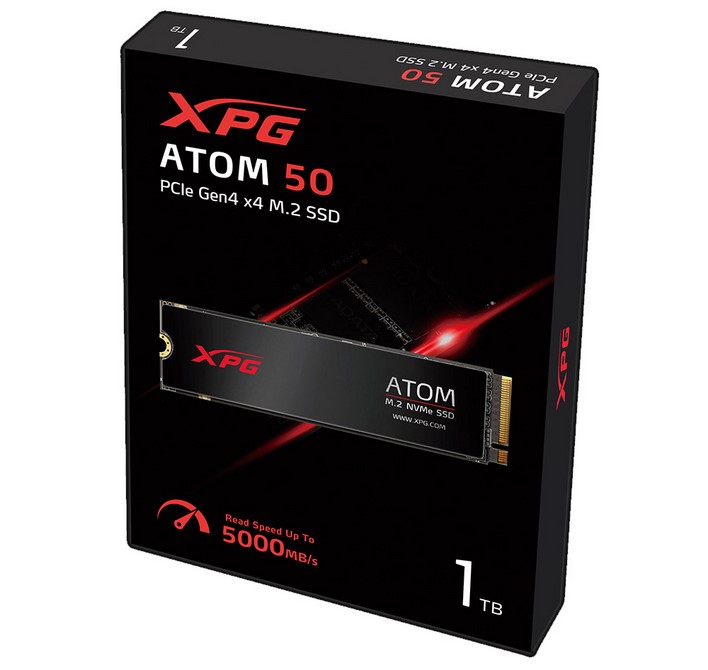ADATA XPG Atom 50 Review: A Speedy Gen 4 SSD For Gamers
ADATA XPG Atom 50: More Benchmarks, Gaming And The Verdict
HDTune v5.75 Benchmarks
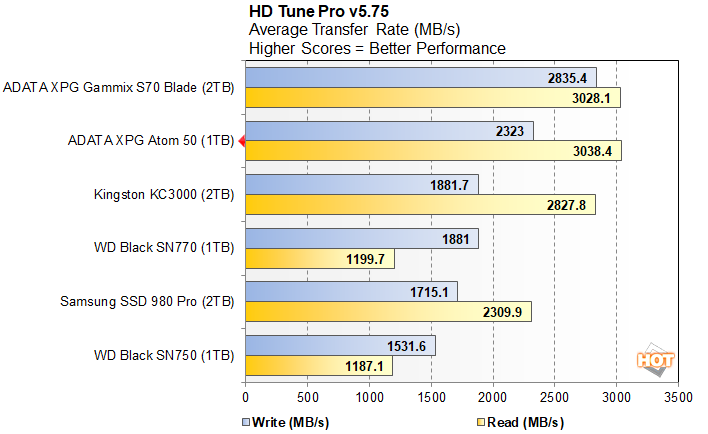
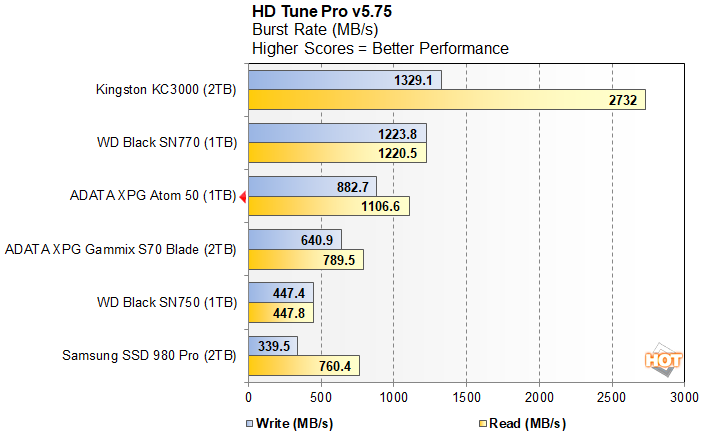
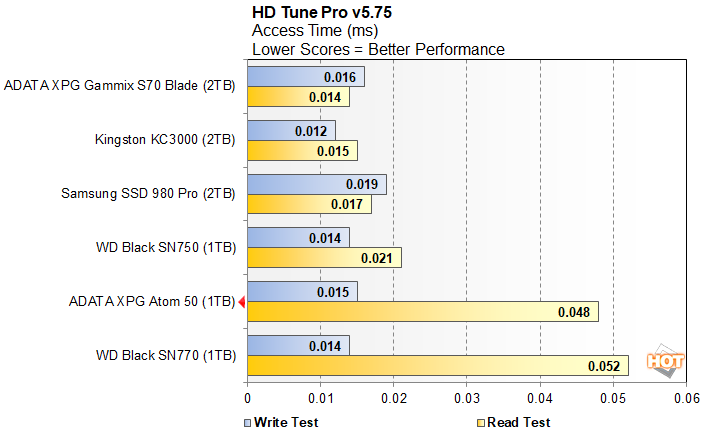
The ADATA XPG Atom 50 put up some strong sequential transfers in the HD Tune benchmark relative to the other drives we tested, but as is typical of most DRAM-less drives, read latency with these particular workloads trails the higher-end, more expensive offerings.
CrystalDiskMark x64 Benchmarks
CrystalDiskMark is a synthetic benchmark that tests both sequential and random small and mid-sized file transfers using incompressible data. It provides a quick look at best and worst case scenarios with regard to SSD performance, best case being larger sequential transfers and worse case being small, random transfers.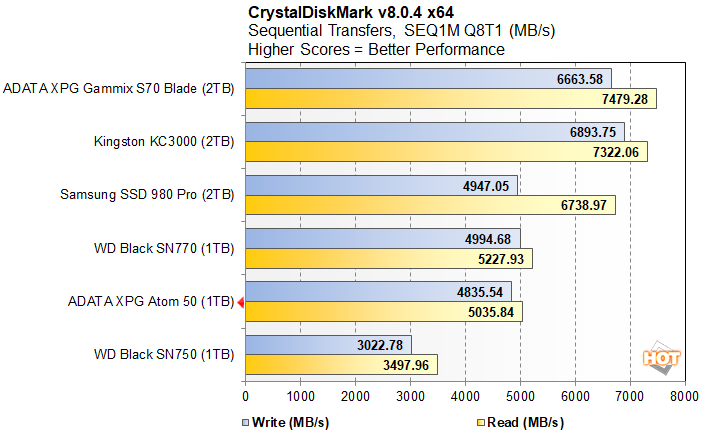
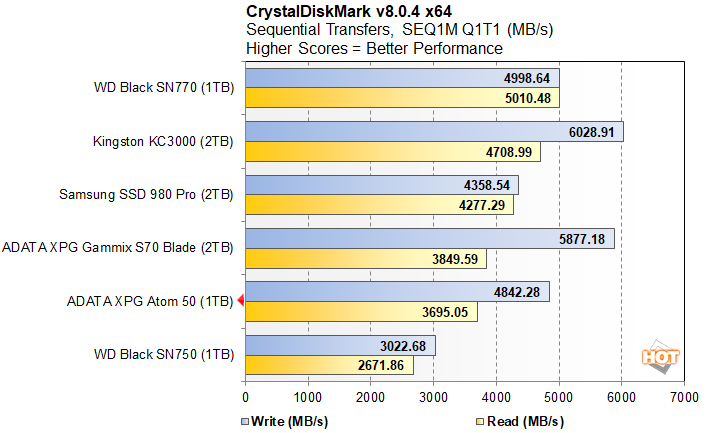
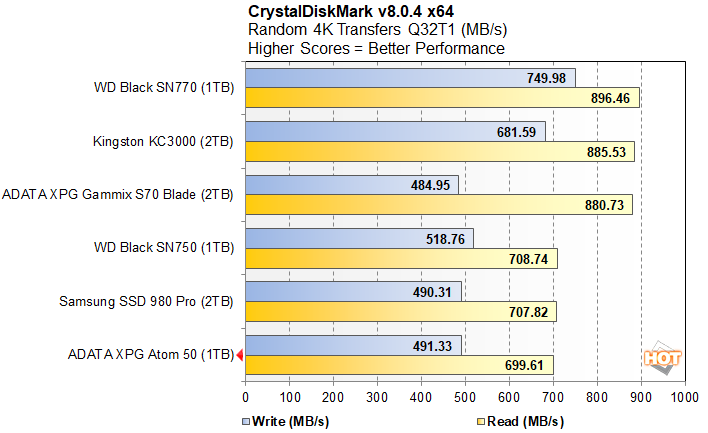
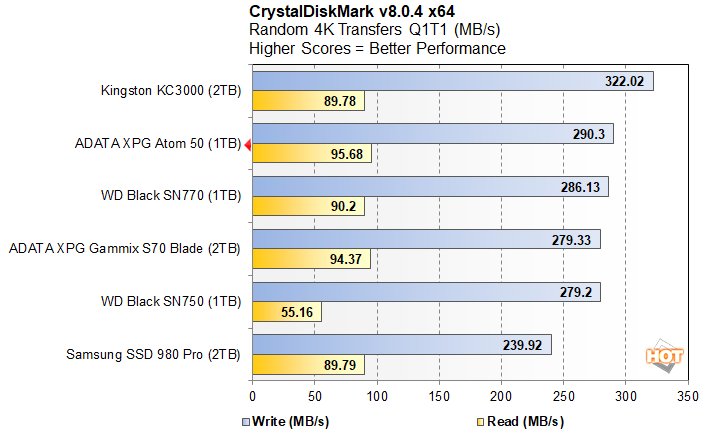
The ADATA XPG Atom 50's sequential transfers didn't look quite as strong with CrystalDiskMark's workloads, but random 4K transfers at QD1 -- one of the most important tests here -- were strong. Reads were actually the best of the bunch, with writes that landed the drive in second place overall.
Final Fantasy XIV: Endwalker Game Level Load Times
We also tested game level load times using the Final Fantasy XIV: Endwalker benchmark. This tool loads an array of different game levels during its graphics benchmark and outputs the average result when complete.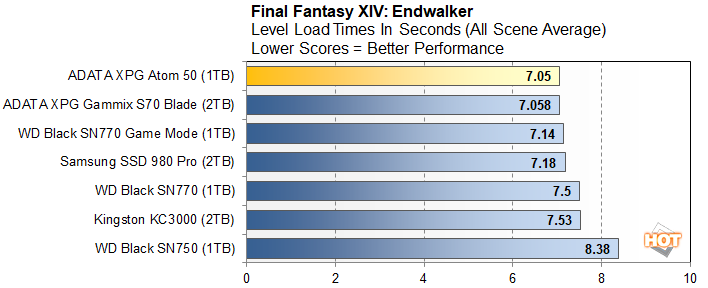
Final Fantasy's level load tests had the ADATA XPG Atom 50 leading the pack. This was a somewhat surprising result, but with the best random 4K reads of the group and competitive sequential transfers, real-world game level loads should be excellent.
UL's PCMark 10 System Drive Storage Test
We like PCMark 10's new quick storage benchmark module for its real-world application measurement approach to testing. PCMark offers a trace-based measurement of system response times and bandwidth under various scripted workloads of traditional client / desktop system use cases.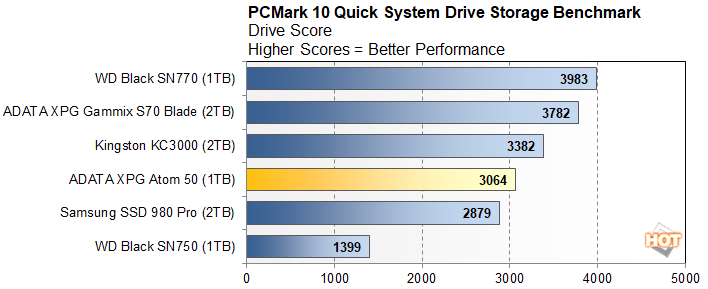
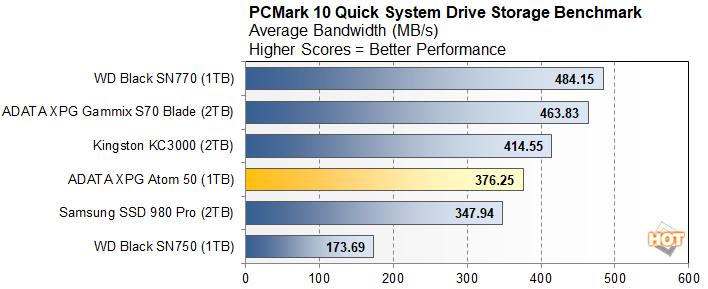
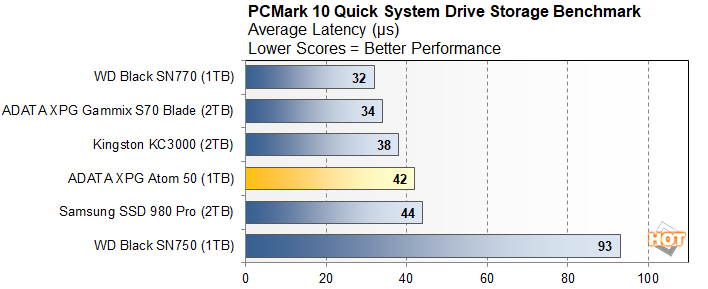
In the trace-based PCMark tests, the ADATA XPG Atom 50 finished about in the middle the pack. The drive was clearly better than any of the PCIe Gen 3 offerings and the Samsung 980 Pro, but the higher-end drives led overall here.
ADATA XPG Atom 50 PCIe Gen 4 SSD: The Verdict
The ADATA XPG Atom 50 is a solid overall performer, especially considering its DRAM-less setup and relatively low asking price. Without any DRAM cache, there's no way the current crop of mainstream SSDs is going to hang with the more expensive PCIe Gen 4 offerings currently on the market, in terms of sequential transfers and overall latency, but 4K random transfers were very good and in the trace based tests, this SSD was right in the mix.

|
|

